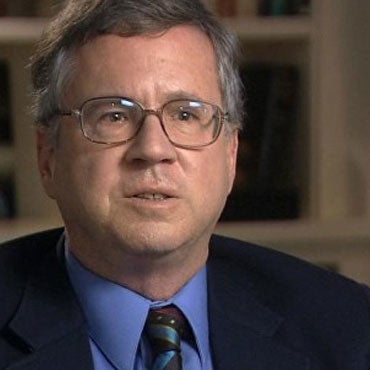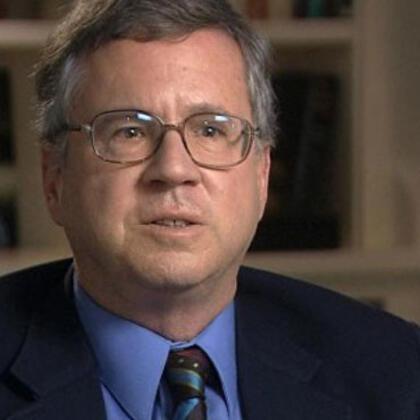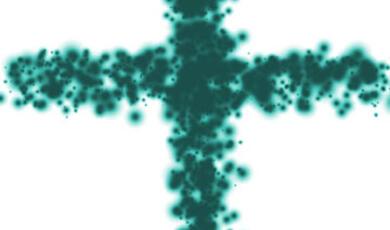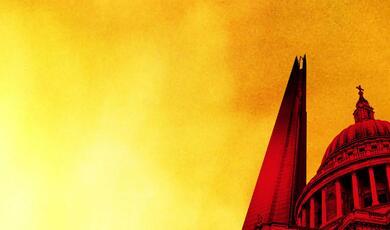Exploring the Influence of Theology on Scientific Research Programmes: Natural Theology In Reverse
Share
- Details
- Transcript
- Audio
- Downloads
- Extra Reading
THE ANNUAL BOYLE LECTURE
The Boyle lectures address topics which explore the relationship between Christianity and our contemporary understanding of the natural world.
Download Transcript
29 March 2017
The Boyle Lecture 2017
A Response from Lord Williams of Oystermouth
Lord Rowan Williams of Oystermouth
I am deeply honoured and very grateful to have the opportunity of responding to a lecture of this quality and originality, and it will not surprise you if I say that I feel somewhat out of my depth in this field. However, what I would like to do, in the few minutes of response and appreciation that have been allowed me, is to identify some of the issues which I believe arise for our general understanding of the methodology of science itself and some of the consequent challenges to theology to clarify its own agenda and priorities in response to this.
What we have heard this evening from Professor Russell is a fundamental challenge to do with the very nature of knowledge and representation. A certain kind of popular scientism still dreams of what we might call a culture-free form of representation, that is, a form of describing reality which is in no way infected by the questions we raise in other areas of our cognitive life, our social life, or our imaginative life, a form of representation which has nothing to do with our convictions. Similarly, there is a form of scientism that dreams of successfully atomising the processes of discovery. It is possible to identify self-contained results from the processes of research which have no necessary connection with other parts of the territory. But what if there is no culture-free space? What if the way we formulate and prioritise our questions is rooted in what we have learned in other areas of activity, communication, and indeed conviction? It may have startled some of you to hear Professor Russell talking about the making of choices in scientific language. Surely, our instinct is to say there is no choice about this: the scientist describes what she or he sees and that is all there is to it. And yet, when scientific discovery is being communicated, people reach for culturally potent metaphors, metaphors which reinforce an imaginative and moral world view. They reach for what we might, perhaps unkindly, call a metaphorical megaphone. Sir Richard Dawkins’ famous image about genes operating within human organisms as some homunculus might operate in a great machine, pulling the levers and moving it around in order to secure its own purposes, is no innocent or culture-free metaphor. It is a highly morally-charged version of the processes that are being described.
Scientists do make choices. They assign priorities to the questions they tackle and they reach for particular rhetorical strategies in communicating their results. This is not to undermine the objectivity of the scientific task, but it is, at the very least, to remind ourselves that the process of intellectual discovery, the scientific mapping of the territory in which we live as human beings, is, like all our human activity, enmeshed in a plurality of response.
Just over 30 years ago, Michael Arbib and Mary Hesse collaborated in the delivery of an important series of Gifford Lectures in the University of Edinburgh, subsequently published under the title ‘The Construction of Reality’. In an early chapter of this very significant book, they spell out the idea that we work in science, as elsewhere, by the construction of what they call schemata. A schema is a coherent map of a territory, not an independent and all-sufficient explanation or representation, but a set of strategies, refined and polished over time, as research activity moves on, but as research activity moves on in tandem with all the other things that human beings do and ask and think about. I quote: “Schemas are not to be seen as isolated monads. They are, rather, entities that interact with one another to model a complex situation, to mediate the organism’s learning and to determine the organism’s course of action. The action/perception cycle is also a learning cycle, as experience is matched against the structure of anticipations generated within the schema assemblage. The schemas of any individual themselves form a holistic network that represents the social network.” Now, this is, of course, a thesis that is about how organisms learn and construct adequate strategies of coping with their immediate environment, but it is clear, as the book advances, that it is also being proposed as a way of thinking about scientific activity itself. No schema is a monad. We are looking towards a holistic network of interpretative strategies for inhabiting our world with a successful measure of intelligence.
There is an inevitable dimension to this, as Professor Russell has indicated, which takes us beyond mere naturalism, and an obvious need therefore to extend our concepts of what will count as cognition. The approach that Arbib and Hesse suggest is, I believe, entirely congruent with the argument we’ve heard this evening from Professor Russell. Choices that are made around comprehensive schemes of interpretation and mapping are not evidentially determined in any simplistic way. Other kinds of support are quite rightly and regularly adduced for the options that we make. We come to know partly because of what we have learned to value as well as what we have learned to picture. We choose our rhetoric and our metaphors in the light of that holistic network of understanding which we occupy simply as intelligent subjects. There is, you might say, no equal light on the landscape. What is picked out by theory is going, in its distinctiveness, to depend on more than just the solving of these immediate problems. That of course is why debates around, for example, freedom and determinism are so beleaguered by philosophical confusion. Some would like to suppose that the neurological evidence makes it clear that there is no such thing as free choice because neural patterns are activated before an action is actually taken. Others have noted that the neurological experiments associated with this are already heavily loaded by the expectations of a deterministic result and an atomistic measurement of what constitutes action and decision. There is no culture-free space, once again.
We might also think of the currently and probably lastingly insoluble debates about the existence of parallel universes because, when you think about it, there is, in the nature of the case, no evidence available about alternative universes, therefore the role that they play in any comprehensive scientific picture is going to depend very heavily on the metaphysics and the ethics brought to bear.
So much on how we define cognition, how we understand and misunderstand representation, but the final question which we are left with by this watershed presentation from Professor Russell is a challenge back to theology itself: what kinds of scientific question are indeed raised as worthwhile and worth pursuing by theology? We have had one example put before us, that is the need for a universe in which there is a certain openness in the causal system, a certain level of indeterminacy, but what other things might we expect to be present and challenging and interesting in the natural world if we begin from a Christian and theological perspective? We might, for example, expect to find holistic explanations, rather than atomised ones, the most persuasive. We might expect the teleological, the top-down interpretation, to do more heavy lifting than more narrowly focused versions. We might expect, given what we say as Christians about the role of the logos in the universe, that patterns of exchange of energy were always at the same time patterns of exchange of information. We might expect to find, in the wonderful phrase of Professor Connor Cunningham that it’s “intelligence all the way down”. We might expect certain understandings of time, as once again we have been reminded, to function more effectively than others. We might expect – and this is a theme which last year’s Boyle lecturer, Professor Sarah Coakley, my long-time colleague and friend, has taken a great interest in – we might expect that fundamentally cooperative, rather than competitive and rivalrous, patterns told us more about the universe than otherwise. We might want to tackle the extremely difficult questions about the nature of finite substance, particle or relation. We might want to dust off, on the theological side, Austin Farrer’s comment that no religious metaphysic can do without a doctrine of finite substance, and dust off, on the scientific side, the work of David Bohm on the implicate order of the universe, and wrestle with the theological implications of both and what theology might have to say about whether substance is discrete or continuous. We might, of course, pick up the challenge laid down many years ago by Rupert Sheldrake as to what kinds of research programmes could confirm or disconfirm intuitions and half-formed theories about otherwise inexplicable connections between the processes of learning in organisms.
It is in those areas, I believe, that theology, clarifying its own implications, can suggest to the scientist, in just the way Professor Russell has outlined, where a constructive and original agenda might run, and in so doing, the basic challenge is this: it can’t be science if it’s generated by non-empirical observation, and yet, the processes of discovery are culturally shaped. We learn what, for whatever reason, we want to learn. That certainly does not mean that what we learn is not truth, but it does mean a certain kind of epistemological humility in understanding that knowledge wears many guises, that cognition is not a single, straightforward process of problem-solving, and that the glory and richness of what we, as human beings, call knowledge is not to be reduced to any one set of practices.
Professor Russell has opened up a rich vein of reflection in relation to all these issues, and it is a privilege for me to be able, on behalf of what I can see is a deeply appreciative audience, to express our warmest thanks to him for this deeply important contribution to a subject which will not cease to engage all of us.
©Lord Rowan Williams of Oystermouth, 2017
Part of:
This event was on Wed, 29 Mar 2017
Support Gresham
Gresham College has offered an outstanding education to the public free of charge for over 400 years. Today, Gresham plays an important role in fostering a love of learning and a greater understanding of ourselves and the world around us. Your donation will help to widen our reach and to broaden our audience, allowing more people to benefit from a high-quality education from some of the brightest minds.


 Login
Login







